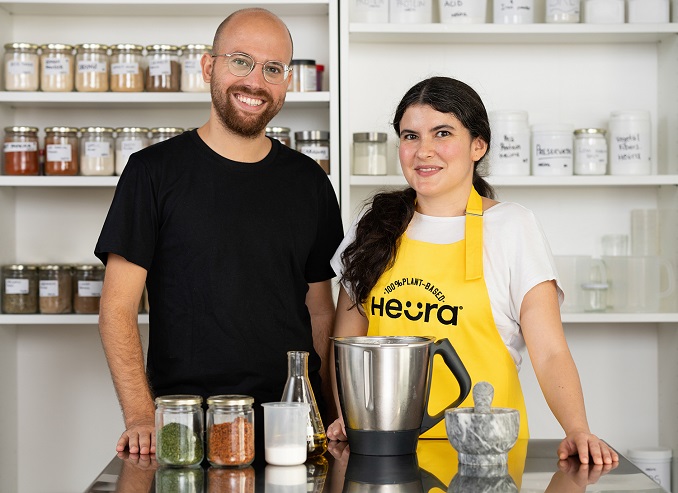While the worst of the COVID-19 pandemic is hopefully now over and a full economic recovery is well within sight, the foodservice industry continues to be hampered by the unprecedented labor shortages that began more than two years ago with mass pandemic-driven layoffs.
The suggested reasons for the ongoing labor shortages abound and include everything from potential employees worrying about their personal health and safety and fearing future layoffs to the industry’s historically low wages and long, stressful hours.
In a January 2022 survey, GP PRO reached out to individuals who worked in guest-facing foodservice positions within the prior two years to hear firsthand what is fueling the industry’s labor shortage now that COVID restrictions have been put to rest. The findings provide food for thought for owners and operators eager to attract and retain the best employees.
Wages & Benefits
The debate over wages rages on and on and on. How much money should foodservice workers make? What about those who receive tips versus those who don’t? Will higher wages result in higher menu prices? Should hourly workers have access to health insurance, a retirement savings plan, or college tuition reimbursement? For foodservice workers, there’s nothing to debate. They, like employees in any other industry, remain steadfast in expecting and deserving at the very least a living wage and health benefits. =
When looking at a foodservice labor shortage, wages and benefits cannot be ignored given that the restaurant business is historically low-paying, particularly for those who work as servers, bussers, dish washers, and runners. That said, GP PRO’s survey found that 65% of boots on the ground restaurant workers who kept their jobs for all or part of the pandemic saw their wages increase from January 2020 through January 2022, and 74% were provided health insurance or access to it.
These positives, however, are countered by additional survey findings that show just 37% of foodservice workers received bonus pay or any additional compensation above their base within that same time period, something that became quite common in other industries in the midst of the pandemic. Further, while 34% of workers said their mental health was negatively impacted during the pandemic, just 25% were provided mental health counseling or access to it.
Career Opportunities
A career is generally thought of as a profession or occupation that a person spends a large part of their life pursuing and that includes opportunities for advancement to higher level positions. Popular belief suggests that foodservice employees do not consider working in the restaurant business a viable career. Yet GP PRO’s survey data shows that 82% of employees have worked in the industry for four or more years, and 83% are likely to continue working in the industry.
In any other line of work, four years would be considered a solid start to a career. Such longevity among restaurant workers begs the question of why, then, there’s a foodservice labor shortage. The survey hints at restless discontent within the foodservice workforce that is leading to high turnover. When specifically asked what would help reduce turnover, 62% of foodservice employees said higher wages, 58% said adequate staffing, and 46% said better benefits.
Despite the fact that, as noted above, so many foodservice workers received raises and health benefits during the pandemic, these suggestions are not unexpected and are often discussed as quick fixes to what has become a long-term labor issue. It’s what lies beneath the obvious, however, that gets to the heart of the restless discontent.
Subsequent survey responses reveal that employees are open to a career in foodservice, but they don’t feel management treats them as career employees. For example, 42% of restaurant workers said stronger leadership would help reduce turnover, 40% pointed to management valuing employees as much as they value guests, 38% said better training was needed, and 31% indicated that providing career development opportunities would help reduce turnover.
Automation vs Hospitality
The years-long COVID pandemic reaffirmed the age-old adage that necessity is the mother of invention as demonstrated by the rapid rise of automation within the foodservice industry. From contactless ordering systems to robotic waitstaff, automated drink-lidding solutions to self-service kiosks, technology has taken over nearly every aspect of the dining experience.
While this kind of quick-thinking innovation was instrumental in getting the foodservice industry on its feet again, and while much of it continues to serve a valuable purpose in elevating the customer experience, an argument can be made that some of this automation is also contributing to the industry’s labor issues.
Back in the day, dining out was a real treat; something special, something to get excited about. It provided an opportunity for hospitality – that warm and friendly interaction between people that creates positive feelings and a pleasant experience. That hospitality is something employees and consumers have embraced for decades upon decades, even as much of the dining out experience became little more than rushing through the drive-thru before a soccer game.
But the COVID pandemic heavily restricted human interaction, and foodservice automation made it unnecessary. Yet GP PRO’s survey found that it’s something foodservice workers still crave. In fact, when asked to identify the most appealing aspects of working in foodservice, 56% said interacting with guests, and 45% said interacting with co-workers. Notably, just 9% indicated that automating certain tasks would help reduce turnover.
Food for Thought
A foodservice industry labor shortage means there are more restaurant positions available than people to fill them, and GP PRO’s survey provides some clues as to why. While this situation certainly presents challenges and a need to make difficult financial decisions, astute owners and operators – rose-colored glasses in hand – also see the opportunities this situation provides: the opportunity to differentiate from the competition by treating employees not as disposable, obligatory expenses but as valuable, long-term investments; the opportunity to leverage operational technology to elevate not eliminate employees; and the opportunity to attract and retain the best employees.
Alec Frisch is vice president and general manager of Foodservice with GP PRO, a division of Georgia-Pacific. GP PRO and its Dixie® brand solutions are helping operators innovate and build business with touchless dispensing systems and foodservice disposables that empower productivity and hygiene. Contact Alec at Alec.Frisch@gapac.com.
Read also: Creative Economy | Food & Beverage Magazine







